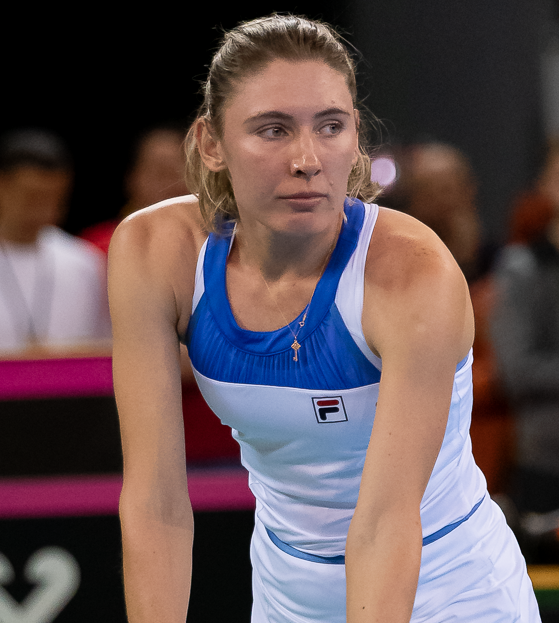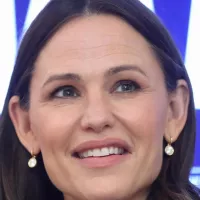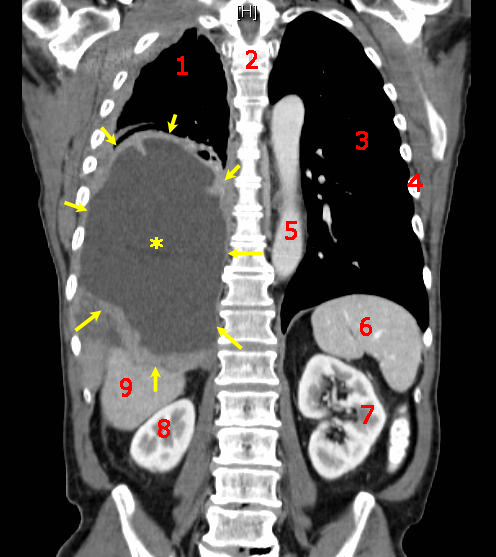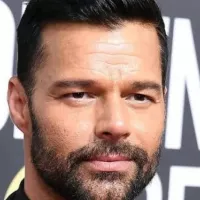Unity Software Inc., formerly known as Over the Edge Entertainment, is a prominent American video game software development company headquartered in San Francisco. Founded in Denmark in 2004, the company gained recognition for its flagship product, Unity. Unity is a widely used, licensed game engine employed in the development of video games and various other applications.
2004: Founding by Key Figures
In 2004, Unity Technologies was founded in Copenhagen by David Helgason, Nicholas Francis, and Joachim Ante, initially as Over the Edge Entertainment.
2004: Consistent Financial Losses Since Founding
Since its founding in 2004, Unity Technologies has consistently reported financial losses, a fact revealed during its 2019 IPO filing. This highlights the company's ongoing financial challenges despite its growth.
2004: Founding of Unity Technologies
Unity Technologies, originally named Over the Edge Entertainment, was founded in Denmark in 2004. The company was established to develop video game software.
2005: Release of GooBall
In 2005, Unity Technologies released their first game, GooBall. Despite its commercial failure, the development tools used in GooBall laid the foundation for the Unity game engine.
2005: Unity Engine Launch
The Unity engine was initially launched in 2005, with the primary purpose of creating video games.
2006: Recognition at Apple Design Awards
In 2006, Unity was named the runner-up for Best Use of Mac OS X Graphics at the Apple Design Awards, highlighting the platform's technical capabilities.
2007: Name Change to Unity Technologies
In 2007, Over the Edge Entertainment rebranded itself as Unity Technologies, a name that has since become synonymous with game development software.
2007: Support for iPhone Game Development
With the release of the iPhone in 2007, Unity Technologies was one of the first to support the platform fully, positioning itself favorably in the mobile gaming market.
November 2010: Launch of Unity Asset Store
In November 2010, Unity Technologies launched the Unity Asset Store, an online marketplace for users to buy and sell various project assets such as artwork, code systems, and audio.
April 2012: 1 Million Registered Developers
By April 2012, Unity Technologies had reached 1 million registered developers, with 300,000 active monthly users. This milestone highlighted Unity's growing popularity in the game development community.
2013: Facebook Integration
In 2013, Facebook integrated a software development kit for Unity games, featuring tools for tracking advertising campaigns and deep linking, enhancing the connectivity between social media and games.
March 2014: Acquisition of Applifier
In March 2014, Unity Technologies acquired Applifier, a mobile service provider. This acquisition included Applifier's game replay sharing service, Everyplay, and its mobile video ad network, GameAds, which became Unity Ads.
October 2014: Leadership Change
In October 2014, David Helgason announced his resignation as CEO of Unity Technologies, with John Riccitiello, former CEO of Electronic Arts, taking over the role. Helgason remained as executive vice-president.
2014: John Riccitiello Becomes CEO
John Riccitiello assumed the role of CEO at Unity in 2014, succeeding co-founder David Helgason.
2015: Unity Establishes Operate Solutions
In 2015, Unity established its Operate Solutions division, encompassing Unity Ads, Unity In-App Purchases, and other related tools.
July 2016: Funding and Valuation
In July 2016, Unity Technologies secured $181 million in funding, valuing the company at approximately $1.5 billion, following the success of Pokémon Go which was built using Unity.
2016: Danny Lange Joins Unity
Danny Lange joined Unity in late 2016 as the vice-president of artificial intelligence and machine learning.
2016: User Base Growth and Pokémon Go Success
In 2016, Unity Technologies had over 5.5 million registered users. The release of Pokémon Go, developed using the Unity engine, showcased Unity's capabilities and contributed to its success.
May 2017: Increased Valuation Post-Funding
In May 2017, Unity Technologies raised $400 million, increasing the company's valuation to $2.8 billion. This was part of several funding rounds that followed the success of Pokémon Go.
2017: Unity Launches "Unity Without Borders"
In 2017, Unity Technologies launched the "Unity Without Borders" program, sponsoring 50 video game programmers from the Middle East to attend the Unity Unite Europe conference in Amsterdam. This program aimed to support those affected by travel restrictions imposed by the Trump administration.
2017: Release of Unity 2017 and ARCore Collaboration
In 2017, Unity Technologies released the Unity 2017 version of its platform and collaborated with Google on ARCore to develop augmented reality tools for Android. The same year, Unity worked with Google Cloud and DeepMind on AI and game development services.
2017: Unity Technologies Appoints First Independent Directors
To prepare for a potential future public offering, Unity Technologies appointed its first independent directors in 2017.
October 2018: Acquisition of Digital Monarch Media
In October 2018, Unity Technologies acquired Digital Monarch Media, a Canadian virtual cinematography company, expanding Unity's influence beyond gaming into virtual cinematography for film and television.
November 2018: Creation of Unity Icon Collective
In November 2018, Unity Technologies launched the Unity Icon Collective, a team dedicated to creating high-quality assets for the Unity Asset Store, competing with rivals like Epic Games' Unreal Engine.
2018: Expansion to Multiple Platforms
By 2018, Unity Technologies had expanded its software to support game development across more than 25 platforms, including mobile, desktop, consoles, and virtual reality.
2018: Unity Technologies Employs Over 2,000 People
By 2018, Unity Technologies had grown to over 2,000 employees distributed across its offices in North America, Europe, and Asia.
2018: Further Valuation Increase
In 2018, Unity's CEO confirmed a $145 million funding round, valuing the company at approximately $3 billion. This funding underscored Unity's strong market position and growth potential.
January 2019: Acquisition of Vivox
In January 2019, Unity Technologies acquired Vivox, a cross-platform voice and text chat provider, for $123.4 million. Vivox's technology is used in major games like Fortnite and League of Legends.
May 2019: Series E Funding Round
In May 2019, Unity Technologies confirmed a $150 million Series E funding round, increasing the company's valuation to $6 billion. This marked significant financial growth for the company.
September 2019: Acquisition of deltaDNA
In September 2019, Unity Technologies purchased deltaDNA, a game analytics company, for $53.1 million, enhancing Unity's analytics capabilities.
October 2019: Acquisition of ChilliConnect
In October 2019, Unity Technologies acquired ChilliConnect, a live game management platform, further expanding its service offerings to game developers.
November 2019: Acquisition of Obvioos
In November 2019, Unity Technologies acquired Obvioos, the creator of the 3D application streaming service Furioos, enhancing Unity's cloud capabilities.
2019: IPO Filing and Financial Losses
In 2019, Unity Technologies' IPO filing revealed significant financial losses, including over $162.3 million for the year. Despite these losses, the company continued to grow in revenue and employee numbers.
2019: Breakdown of Unity's Revenue Streams
In 2019, Unity's revenue streams were distributed as follows: Operate Solutions accounted for 54%, Create Solutions (including Unity Engine subscriptions and professional services) for 31%, and other income sources for the remaining 15%.
June 2020: Unity Partners with Apple for Apple Silicon Support
In June 2020, Unity announced its partnership with Apple to make the Unity Engine compatible with Macs using Apple silicon. This partnership allowed game developers to optimize their games for the new hardware.
August 2020: Unity Announces IPO Plans
In August 2020, Unity announced its intention to go public. At the time, they had 1.5 million monthly users and saw 150,000 new projects initiated daily.
September 2020: Unity Technologies Goes Public
Unity Technologies, headquartered in San Francisco, California, went public in September 2020.
September 2020: Unity Goes Public
Unity successfully completed its initial public offering (IPO) on September 17, 2020, raising US$1.3 billion. Trading began the following day on the New York Stock Exchange under the ticker symbol 'U'. The IPO valued Unity at approximately US$13.7 billion.
December 2020: Unity Acquires MLAPI and RestAR
Unity expanded its technological capabilities in December 2020 by acquiring MLAPI, a multiplayer networking framework, and RestAR, a computer vision and deep learning company.
2020: Unity's Reach and Impact in 2020
By 2020, Unity had achieved significant reach with 2 billion monthly active users engaging with applications built on its platform. Furthermore, there were 1.5 million monthly creators actively utilizing Unity.
2020: Unity Achieves Net-Zero Carbon Emissions
Unity announced in 2020 that it had achieved net-zero carbon emissions and joined the Science Based Targets Initiative, demonstrating its commitment to environmental sustainability.
June 2021: Unity Acquires Pixyz Software
In June 2021, Unity acquired Pixyz Software, bolstering its 3D data optimization capabilities.
August 2021: Unity Announces Plans to Acquire Parsec
Unity aimed to enhance its desktop streaming capabilities by announcing its plan to acquire Parsec, a desktop streaming software company, in August 2021 for $320 million.
November 2021: Unity Acquires Weta Digital
In a significant move, Unity acquired Weta Digital, renowned for its visual effects work, for $1.63 billion in November 2021. While integrating Weta's 275 engineers, Unity ensured the visual effects and animation teams' continuity as a separate entity. Notably, WetaFX remained primarily owned by Peter Jackson.
January 2022: Unity Acquires Ziva Dynamics
Unity started 2022 by acquiring Ziva Dynamics, a Vancouver-based company known for its expertise in visual effects (VFX).
March 2022: Unity Partners with Insomniac
In March 2022, Unity announced a partnership with Insomniac to explore the creation of interactive online concerts and events.
June 2022: Unity Lays Off 4% of Workforce
In June 2022, Unity made the difficult decision to lay off 4% of its global workforce, impacting over 200 employees.
July 2022: Unity Agrees to Acquire ironSource
Unity made a significant move in July 2022 by agreeing to acquire ironSource, a leading mobile monetization and marketing platform, in an all-stock deal valued at US$4.4 billion. The deal would result in Unity shareholders owning about 73.5% of the merged company, while ironSource shareholders would retain approximately 26.5%.
August 2022: AppLovin Proposes to Acquire Unity
AppLovin made an unsolicited bid to acquire Unity for $17.54 billion in August 2022, proposing an all-stock transaction. This bid, however, excluded ironSource, which Unity had agreed to acquire in July.
September 2022: Unity Adds Server-Hosting and Matchmaking Services
In September 2022, Unity expanded its suite of tools by introducing server-hosting and game matchmaking services.
November 2022: Unity Completes ironSource Acquisition
In November 2022, Unity finalized its acquisition of ironSource, a prominent mobile monetization and marketing company.
January 2023: Unity Lays Off 284 Employees
In January 2023, Unity laid off 284 employees.
March 2023: Unity Launches Marketplace for AI-Generated Assets
In March 2023, Unity announced the launch of a marketplace specifically for AI-generated assets. This marketplace offers a variety of assets including characters, environments, animations, and sound effects.
September 2023: Unity Announces Controversial Pricing Changes
In September 2023, Unity announced changes to its pricing, introducing Runtime Fees, which charged developers based on installs exceeding a certain limit, determined by their Unity plan. These changes sparked widespread discontent within the developer community, raising concerns about the financial burden, potential inaccuracies in installation counts, and the retroactive application of fee thresholds.
September 22, 2023: Unity Revises Runtime Fees After Backlash
After receiving significant backlash from developers regarding planned changes to its pricing model, Unity announced revisions to its Runtime Fees policy on September 22, 2023. These revisions included: No fees for Unity Personal, which now applies to projects funded up to $200,000 (previously $100,000). Fees would only be applicable to games developed with Unity 2024 and later, eliminating retroactive charges. Fee calculations would be based on self-reporting, capped at the lower of 2.5% of monthly revenue or a calculated amount based on monthly engagements.
October 9, 2023: John Riccitiello Steps Down as CEO
Following a series of controversies, John Riccitiello announced his departure from Unity on October 9, 2023. James M. Whitehurst was appointed as the interim CEO and president.
October 2023: John Riccitiello's Tenure as Unity CEO Ends
John Riccitiello, who had served as Unity's CEO since 2014, stepped down from his position in October 2023.
January 2024: Unity Announces Layoffs as Part of Company Reset
In January 2024, Unity announced another round of layoffs, cutting 1,800 jobs, representing 25% of its workforce. This move was part of a broader company reset.
May 2024: Matthew Bromberg Appointed as Unity CEO
Unity appointed Matthew Bromberg as its permanent CEO in May 2024. Jim Whitehurst transitioned to the role of Executive Chair of the board, and Roelef Botha resumed his position as Lead Independent Director.
2024: Unity Runtime Fees to be Implemented
Unity's new Runtime Fees were set to be implemented in 2024, applying only to games developed using Unity 2024 or later, a revision made after the initial announcement sparked controversy and backlash from the developer community.
Mentioned in this timeline

Epic Games founded by Tim Sweeney as Potomac Computer Systems...
Facebook is a social media and networking service created in...

Liverpool is a port city and metropolitan borough located in...

Google LLC is a multinational technology company specializing in online...
California is a U S state on the Pacific Coast...

An apple is a widely cultivated edible fruit originating in...
Trending

4 months ago Alexandrova Reaches Ningbo Final, Set to Face Rybakina After Shnaider Victory

8 months ago Jennifer Garner and John Miller share passionate kiss; Ben Affleck spotted solo.

7 months ago King Charles Provides Health Update Amid Cancer Battle; Lumley Shares Insight

10 months ago Liam Neeson revives Frank Drebin in 'Naked Gun' reboot; trailer debuts.

Enrique Martin Morales known as Ricky Martin is a Puerto Rican singer songwriter and actor He gained initial fame as...

8 months ago Potential NBA Trades: Dillon Brooks, DeMar DeRozan, and the Rockets' Draft Pick
Popular

Thomas Douglas Homan is an American law enforcement officer who...

Melania Trump a Slovenian-American former model has served as First...

Jupiter is the fifth and largest planet from the Sun...

William Franklin Graham III commonly known as Franklin Graham is...

XXXTentacion born Jahseh Dwayne Ricardo Onfroy was a controversial yet...

Instagram is a photo and video-sharing social networking service owned...